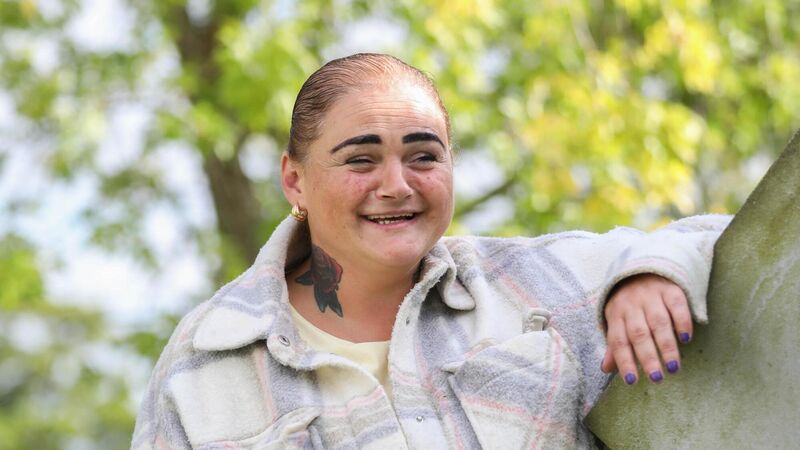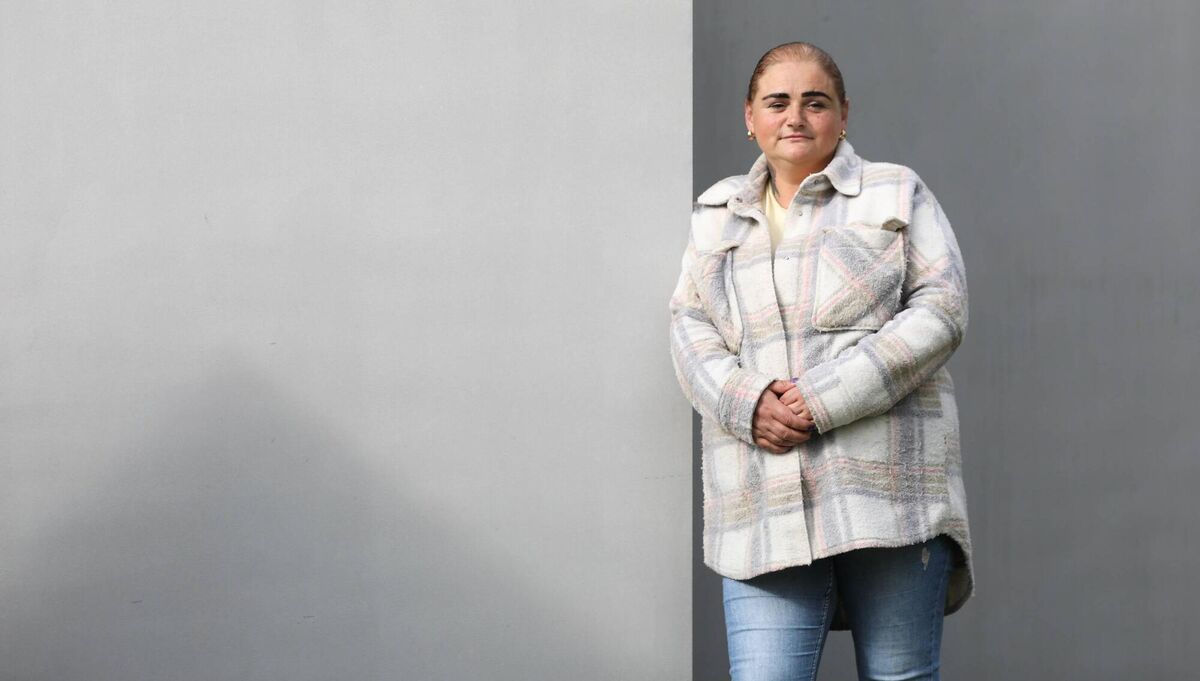'Prison saved my life... now I'm starting college' says mum of three Carrie Keegan

Carrie Keegan starting drinking at the age of nine and taking drugs when she was 12.
"Prison saved my life," says Carrie Keegan.
Maybe it's a measure of just how chaotic her life had become that an 11-month jail term marked a change in how the 39-year-old was living.
Carrie, a mother-of-three, is originally from Co Laois but spent 26 years addicted to drugs and 11 years sleeping rough on the streets of Dublin. But now, things are different.
"Everything is good now," she says, reflecting back on continuing treatment, ongoing sobriety, and new opportunities.
Key to Carrie's turnaround was that spell in the Dochas Centre, but more specifically, the chance to then access the Tus Nua facility operated by the homeless charity Depaul.
According to the organisation's chief executive, David Carroll, the 15-bed women-only unit is "unique" and can make "an incredible difference" to those who access it.
He believes Tus Nua, based in Dublin, could act as a blueprint for other similar services around the country - something he says is badly needed given record levels of homelessness and Depaul's own client base profile.
Last year, a quarter of people assisted by Depaul were women, and according to David Carroll, they often need specific, tailored supports to move them out of homelessness.
"Many women we are working with come from positions of poverty or trauma, with gender-based violence being an example of that," he says.
"Some people come from childhood experiences of abuse and that leads to drug and alcohol difficulties and then spiral into homelessness. And then once in homelessness, they are subject to vulnerability."
He adds that these issues can then be compounded by children being taken into care or involvement with the criminal justice system.
July brought an unwanted record when it came to the number of people in emergency accommodation overall, and in the past 12 months, the group that has seen the biggest increase is that of young men, aged 18 to 24.
But women entering homelessness often involves family homelessness and presents particular challenges.
"It underlines the need for units of that nature [like Tus Nua] going forward," David says.
"We would love to see it broadened out to Limerick Prison as well, where there is a significant population attached to the prison."
Carrie says she began drinking at the age of nine and taking drugs at age 12. She was one of seven children. Recent months have led to a sober reconsideration of her past.
"It wasn't my fault and it wasn't my mother's fault either," she says. "There was stuff from her childhood that she brought into my life. She didn't have a great life herself."
As for prison, "it did, it saved my life," she says. "If my addictions got any worse... I ended up getting clean. I don't think I would have been able to do it myself, get off methadone. I didn't know who I was.

"I had a slip last Christmas, I picked up a drink, but I didn't stay at it. I genuinely didn't think I was going to change my life. Now I'm starting college, I'll find out tomorrow what days I am going in. I will be doing my literacy and a cheffing course as well.
"There are not enough places like Tus Nua and there should be more places for women with children because there's not," she continues.
"There are not many treatment centres either but the ones there are, they can't take the kids. Women are afraid the kids will be taken off them.
"I understand, I would have been on the streets and you do a lot. I used to go around with a knife, I would be asleep in a doorway and be terrified that someone would come up and do something to me.
"You're sleeping with one eye open."
For support organisations, such as Depaul, the focus is on stemming the flow of homelessness amid a steeping cost-of-living crisis and the new challenges posed by the surge of Ukrainians fleeing the war in their own country.
David Carroll says the government will need to reassess housing targets in light of this and the fact that the White paper recommendations on Direct Provision, which would have eased out DP centres in favour of own-door accommodation, have been put on hold.
Depaul is awaiting a tender to provide a fresh service for trafficked women. A seasonal moratorium on evictions should also be explored, he says.
"The situation is fluid, we are not very, very clear that if [Ukraine] war ended how many Ukrainians would remain in Ireland, but we need to look at our global picture and social housing provision," he says.
"We are waiting for the supply and would encourage the government to set specific targets according to local authority action plans that take into account the needs of single people in that cohort."
Single people like Carrie, who is now moving on after years in the wilderness. She is being rehoused and faces a different path from the one that has marked the last three decades of her life.
"It is a new chapter in my life," she says. "I can move on from my past."





